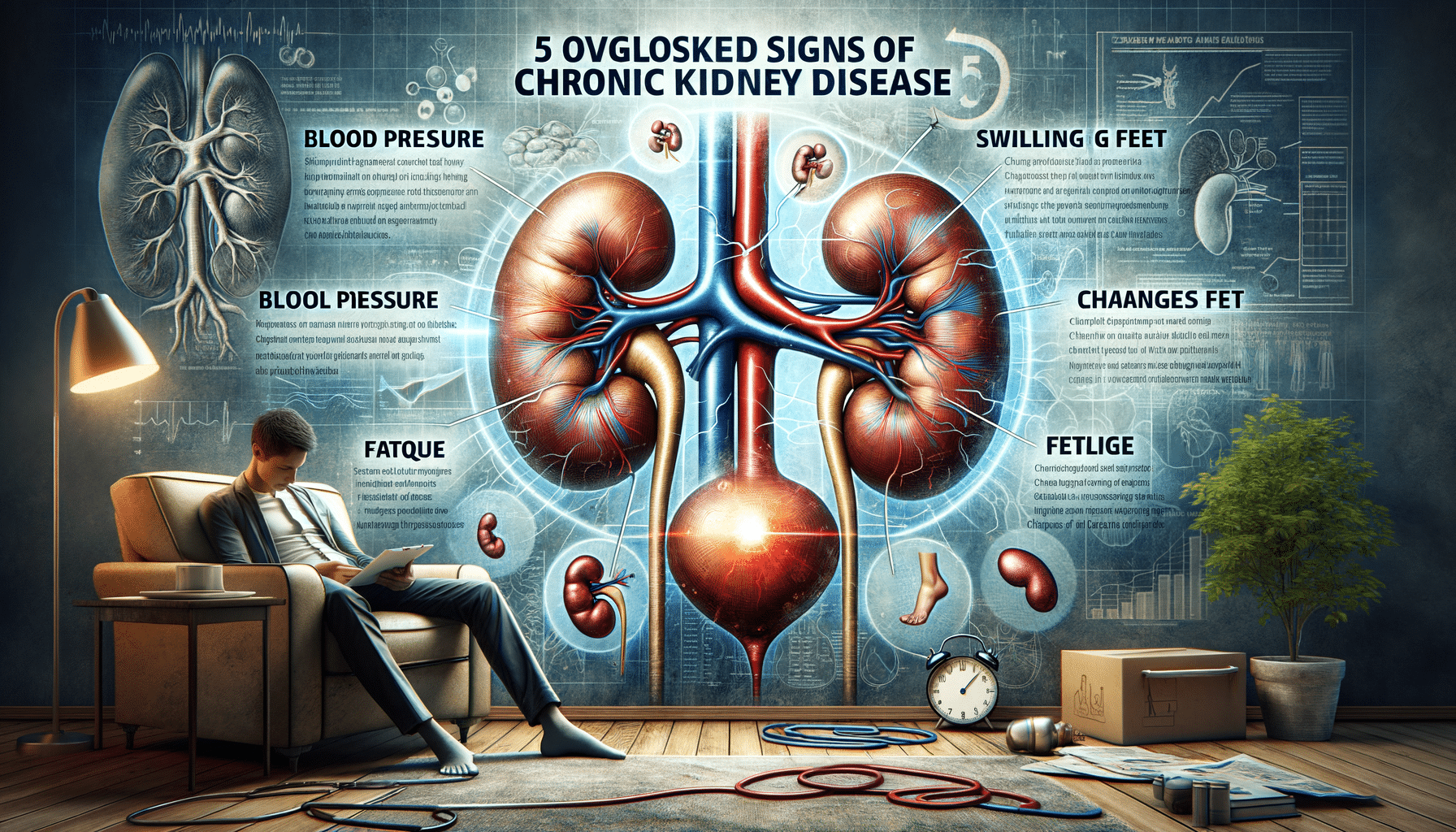
Introduction: Understanding the Silent Nature of Chronic Kidney Disease
Chronic Kidney Disease (CKD) is a progressive condition that affects millions of people worldwide. Despite its severity, the early signs of CKD are often subtle and easily overlooked. This makes early detection challenging, yet crucial for effective management and treatment. Understanding these overlooked signs can lead to early intervention, potentially slowing the progression of the disease and improving quality of life.
CKD often goes unnoticed until it reaches advanced stages, primarily because the kidneys can compensate for lost function. However, recognizing the early signs can make a significant difference. This article explores five overlooked signs of CKD, aiming to raise awareness and encourage proactive health monitoring.
Fatigue and General Weakness: More Than Just Tiredness
One of the most commonly overlooked symptoms of CKD is persistent fatigue and a general sense of weakness. While feeling tired after a long day is normal, constant fatigue that doesn’t improve with rest could be an indicator of underlying health issues, including CKD.
The kidneys play a vital role in filtering waste and excess fluids from the blood. When they are not functioning properly, toxins can build up in the body, leading to feelings of fatigue and weakness. Additionally, CKD can lead to anemia, a condition where the body lacks enough healthy red blood cells to carry adequate oxygen to tissues, further contributing to fatigue.
It’s important to pay attention to your body’s signals. If you find yourself feeling unusually tired or weak without a clear cause, it might be time to consult a healthcare professional. Early diagnosis could lead to better management of CKD and improved overall health outcomes.
Changes in Urination Patterns: A Subtle Yet Significant Sign
Changes in urination patterns are another overlooked sign of CKD. This can include increased frequency, especially at night, or changes in the color and appearance of urine. Some people may notice their urine is foamy or bubbly, which can indicate protein leakage—a common sign of kidney damage.
While these changes can be attributed to various factors, including diet and fluid intake, persistent alterations in urination should not be ignored. The kidneys are responsible for filtering waste from the blood to produce urine, so any disruption in this process could signal kidney issues.
Monitoring your urination patterns and discussing any abnormalities with a healthcare provider can be a proactive step in detecting CKD early. Remember, early detection is key to managing the disease effectively and preventing further complications.
Swelling in the Extremities: Understanding Edema
Swelling in the extremities, particularly in the legs, ankles, and feet, is a symptom often linked to CKD. This swelling, known as edema, occurs when the kidneys are unable to remove excess fluid and salt from the body, leading to fluid retention.
Edema can also be a symptom of other health conditions, such as heart disease or liver problems, making it essential to consult a healthcare professional for an accurate diagnosis. The presence of edema can be uncomfortable and may impact mobility, further affecting quality of life.
By recognizing and addressing this symptom early, individuals with CKD can take steps to manage fluid retention and reduce discomfort. This may include dietary changes, medication, or other treatments as advised by a healthcare provider.
Skin Changes: A Reflection of Internal Health
The skin is often a reflection of internal health, and changes in skin condition can be an overlooked sign of CKD. Individuals may notice their skin becoming dry and itchy, which can be attributed to the buildup of waste products in the bloodstream that the kidneys are unable to filter out effectively.
In some cases, CKD can also lead to changes in skin color, with some individuals experiencing a yellowish or pale hue. These changes, while subtle, can be indicative of underlying kidney issues and warrant further investigation.
Maintaining skin health through proper hydration and skincare can help alleviate some of these symptoms, but addressing the root cause is crucial. Consulting a healthcare provider can provide insights into potential kidney issues and guide appropriate treatment options.
Conclusion: The Importance of Early Detection and Management
Chronic Kidney Disease is a serious health condition that often presents with subtle symptoms. By understanding and recognizing these overlooked signs, individuals can take proactive steps towards early detection and management. This not only improves health outcomes but also enhances quality of life.
Regular health check-ups and open communication with healthcare providers are essential in identifying CKD early. By staying informed and vigilant, individuals can better manage their health and mitigate the risks associated with chronic kidney disease.